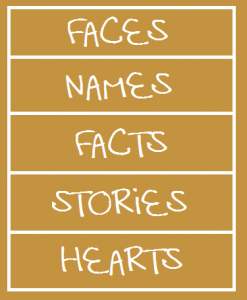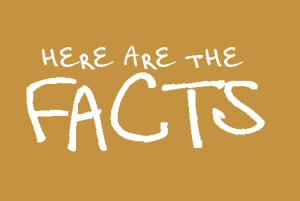In my History and Philosophy of Ministry class, we have read from a book called The Reformed Pastor by Richard Baxter. One of the subjects he touches on in this book is the importance of a minister to know the people in his church, or to “Take heed to all the flock.” He writes:
“Take heed to all the flock.” It is, you see, all the flock, or every individual member of our charge. To this end it is necessary, that we should know every person that belongeth to our charge; for how can we take heed to them, if we do not know them? We must labour to be acquainted, not only with the persons, but with the state of all our people, with their inclinations and conversations; what are the sins of which they are most in danger, and what duties they are most apt to neglect, and temptations they are most liable to; for if we know not their temperament or disease, we are not likely to prove successful physicians.
He goes on to mention that some pastors are in positions at large churches where they cannot know everyone (yes, mega-churches aren’t a new phenomenon.) He says to them, “Is it necessity or is it not, that hath cast you upon such a charge? … How durst you undertake that which you knew yourself unable to perform, when you were not forced to it?” So after lowering the boom, he goes on to tell these ministers that it is their job to know their people, and if they can’t, then they either need to find assistance by finding some assistants– or they need to move on.
I have thought of this issue in the church for a few years now– I’m not sure if it’s more encouraging to know that I’m not the only one or discouraging that it’s been a problem for so long. But a couple of months ago, I came up with a good diagram for a plan of action for how we can know the people in our church more and more.
The only way we are going to know people is if we reach out to them. And if we reach out too fast, it is likely we are going to turn them off (at least with people whom we don’t already know). This order of welcome starts off with strangers, but can be utilized in any relationship.
Hands- A handshake, a high five, a fist bump, a pat on the back, a wave, a hug- All of these physical acts of welcome involve the hands. First to make someone feel welcome we must show that they are welcome into our family, into our body- and that must be done with each individual body within the Body. May each member of the Church use their hands to be a Hand that welcomes others in.
Words– “How are you?” “Hi there!” “Thanks for being here.” “You’re awesome!”- The way we move on from merely welcoming people to actually bridging the gaps of unfamiliarity is with words. Proverbs 16:24- “Gracious words are like a honeycomb, sweetness to the soul and health to the body.” We must use words– in greeting, in conversation, in encouragement, in welcome, in thanks, in greetings, and in prayer- to let others feel safe and welcomed in the Church. May each word of welcome you speak be part of the gracious Word of love.
Attention– The first two parts involve the hands and mouth- this involves the eyes. It is easy to look past the unknown, let the stranger settle in his seat and give him his space. We don’t want to stare or glare, of course. But it is important to look and see people, to recognize their existence. And beyond that, it is crucial to show attention in conversation and in relationship, that what they are saying and who they are is important, more important than the clock or your phone. May you look on all you meet with eyes of love as He looks upon us all.
Interest– This is an act of the ears, but of the whole body as well- We greet with our hands and mouth, give our attention as an act of friendship, but to show interest we must listen and hold our whole body in patience, slowing down long enough to truly hear what the other person is saying. We must show interest in others, not just to know prayer requests or happy stories but more than that. We must truly be interested in who they are and how their journey is going. The only way to do that is to practice, to stand and listen and follow what they are saying. And as you listen, you may find that this person really is interesting and beloved. May you find each person you meet to be worthy of your time and interest– for Jesus sacrificed Himself for them, because He thought they were worth it.
Love– It seems silly to say that Love is a final step. Shouldn’t it be the first step? say some. Shouldn’t it be the only step? say others. And they are right. But Love is the final part of welcoming others, because all these other actions and steps are merely ways of bringing others closer to our hearts and bringing ourselves closer to their hearts– and once we are close enough, our hearts can beat together, like metronomes falling into step with one another. When we draw close to others and let them into our worlds, we can truly love and be loved. May each action, each word, each way you welcome be for the purpose of loving the other and loving the One and for the purposes of the One who is Love.
So these were my thoughts on how to welcome others. But Evan, you say, that’s not what you were dealing with at the beginning of this… essay? article? blog? (Don’t worry, I don’t know what to call it either). Yes, I know, but I was getting the methods and practical elements out of the way. The steps above are practices, the how-to of knowing people. Now we can get to the meaty stuff, the principles, the whys, the basis for all of the above.
You see, as we get to know people, there is a lot to know. Some people consider this a treasure hunt and thrill at the adventure of encountering another soul. Others find it overwhelming– “I must learn their names, occupations, likes, dislikes, temptations, struggles, family members, and favorite TV shows?… that’s too much.” I’m somewhere in between. Before I start to know a person, it’s overwhelming– but when I begin a relationship, it’s exciting to get to know another person’s story. So the best way to look at the adventure is to break it down piece by piece.
Faces– Before you know anything else about a person, you have to know the face. This comes easier to some than it does to others, but it is still crucial. It’s more important than a name, because if all I know is a name but can’t connect it to a face, all I have is knowledge. If I’m passing someone in the street that I met once before, I would rather be able to recognize them and say “Hello!” than worry “Do I know them?” Yes, names are important– in fact, they’re the next step. But when we get to know people, we must know their faces. And not just their faces, but the physicality of their presence- their hair color, the way they carry themselves, their accents, their overall appearance. Now, we don’t just judge appearance and look on the outside. But before we can see the inside, we must at least recognize the outside. Know the face- soon you’ll know the person. May you love another person, through and through, inside as well as outside.
Names– Now I’m getting to names. Yes, names are so important. I remember a few summers ago, the Day Camp Director at Forest Glen, Counselor Deja Vu, would go around at lunch with a list of names and speak to each camper, “John? Sarah! Micah. Allie?” By the end of the week, he’d know their names, and it always meant so much to the kids. I tried to do the same once I reached his position, but often was busy with other responsibilities and never attained his ability. But I did know the kids– I knew their faces, their habits, their personalities. And the ones that I knew their names, I really knew them. Knowing a person’s name makes a person feel valued, loved, significant, worthy. People light up when you say their names, because when they hear their names they are reminded that they exist, that they have a unique identity, that they matter. May you know a person’s name and always speak it tenderly with love, valuing the treasure of the name and the person who shared it with you.
Facts– Now here’s the thing– this is the bridge that we must cross over. We can’t dwell on this bridge. We can’t live on facts, names and faces. If we do, we can survive in relationships, but we can’t thrive. I could know a million facts about a celebrity, know his name or her face, but I don’t know them. Still, facts are important. If I am a teacher, and I don’t know one of my students is allergic to chocolate, we could all get into trouble pretty fast. We must know the facts about the people in our church, in our lives. But we shouldn’t approach them like it’s a list of stuff we have to memorize for our seventh grade vocabulary test. We should rejoice about these facts, finding similarities, making connections, prompting questions, digging deeper to know beyond the facts. Facts are a bridge- we must cross the bridge to get to know the person, but we must not treat the crossing like it’s a chore, but instead like it’s the beginning of the greatest journey we’ll ever take. May you seek out and learn and take to heart all the facts about all the people you can know– and may you go deeper too.
Stories– We all love stories. Whether it’s a funny story, an emotional story, or a story about this one time that you had a mega bloody nose (ok, maybe that’s just interesting to middle school boys). Too often, however, we think we’re the main character of the story, every story. When we compare our lives to Lord of the Rings, we’re Frodo; to Star Wars, we’re Luke or Han Solo; to Narnia, we’re Lucy. We are the main character, and everyone else is secondary. The Christian should know that the main character is also the Grand Storyteller, the One who entered into His own story to redeem what had been done. But beyond that, we need to recognize that every person is on their own journey, living their own story. The way we can remember that fact is by learning other people’s stories– the big and the small, the funny and the sad, the temporary and the ongoing, the past and the current. And we must have empathy and place ourselves in their shoes and truly dwell within their stories. See from their eyes. Understand their struggles. At times it’ll be easy; at times, you’ll want to escape. But to know a person is to know their story. This is where Attention and Interest come into play. We must pay attention to the story being spoken or the life being lived and we must listen with interest and be interested in their life story. May you hear another’s story and see yourself as secondary, learning their life and remembering that it’s not about you. May you all see yourselves in God’s Grand Story, and may you join others as you adventure together within.
Hearts– Once again, it all comes down to Love. This last part is difficult. You might know someone’s heart in an instant or it might take decades. You might know a person’s heart for an instant, and you might know another person’s heart all your life. You can know a person deeply and then things might change. We all have limits on how much we can know– and that includes knowing others. Jesus had the 70 disciples, the 12 apostles, and the 3 who were closest to Him, as well as relationships with many others. Even he had limits on who He could know, but that was only because He set limits on Himself when he became human. We cannot know every person’s heart. Only God can do this. We can know a million faces, a thousand names, the stories and facts of a hundred people, but we might only know five hearts– our mother, our father, our spouse, our friend, our child. The thing is, however, we never know who we might know unless we make the effort. We must learn faces and names, we must journey across the bridge of facts, we must seek and hear stories, and we must pursue every person’s heart. It’s not about the knowledge or the success– “Aha, now I know your heart!”– but it’s about the Love of the Father. As it is sung in my favorite musical, “To love another person is to see the face of God.” I would also say, To love another person is to be the face of God. We must show God’s love by seeing to know others– and if we can draw close enough to know their heart, it can be like it was in Exodus 34, when Moses’s face shone with glory after he spoke with God. If we can draw close enough to another person’s heart, and if we have the Spirit of Grace and Glory dwelling within our heart, God can use us to shine His love upon another person’s soul. May you Love.












